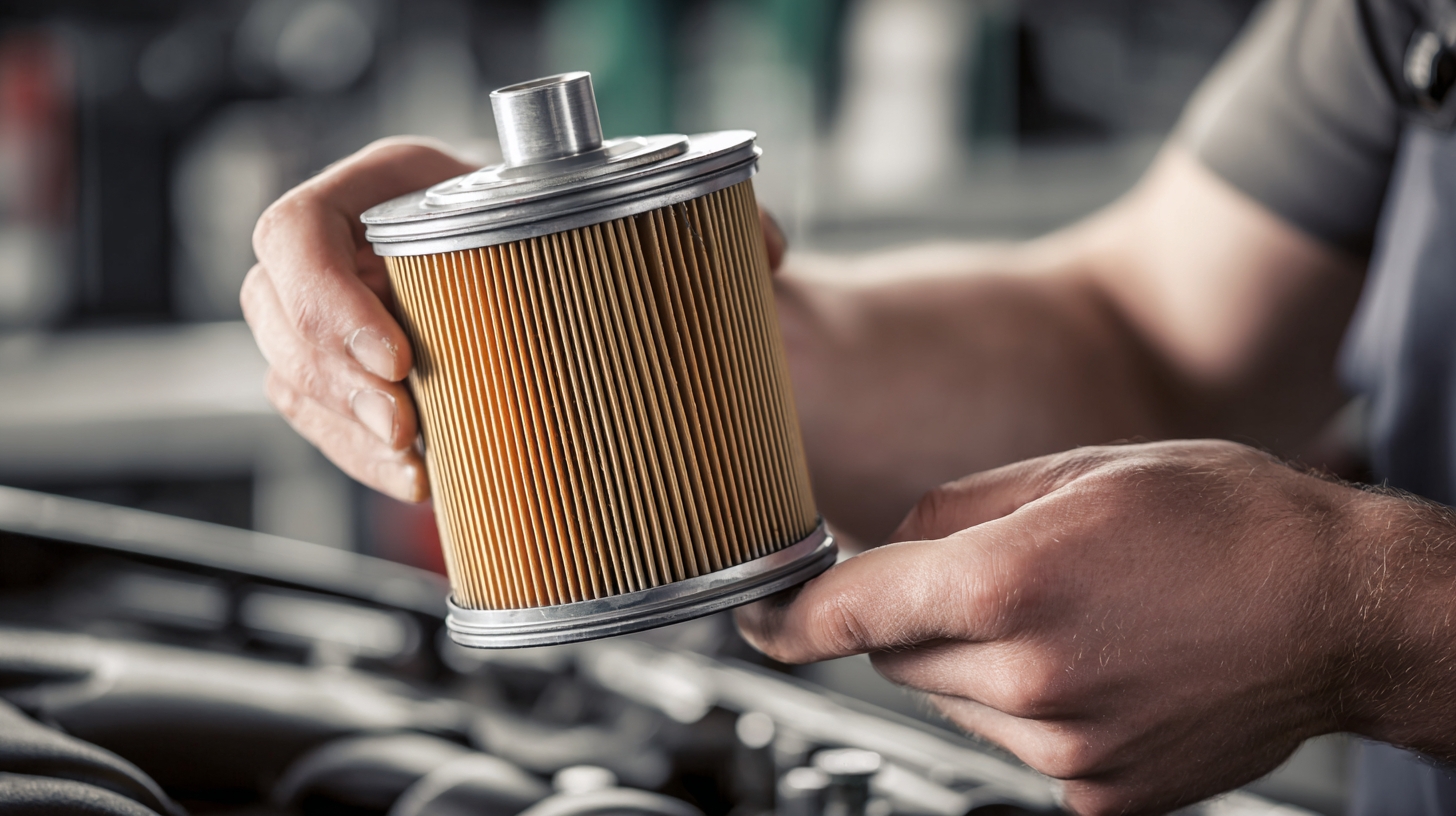Choosing the right Vehicle Oil Filter is a crucial decision that can significantly affect the performance and longevity of your vehicle. According to recent studies, approximately 75% of all engine wear is attributed to contaminated oil, highlighting the importance of an efficient oil filtration system. The Vehicle Oil Filter plays a pivotal role in removing harmful particles from the engine oil, thereby ensuring optimal lubrication and reducing friction. Furthermore, industry standards indicate that a high-quality oil filter can enhance engine durability by up to 30%, making it essential for vehicle owners to make informed choices. This ultimate checklist serves as a comprehensive guide to help you navigate the myriad of options available, ensuring that you select a Vehicle Oil Filter that meets both industry standards and your specific needs.

When selecting the best vehicle oil filter, understanding industry certification standards is crucial. Major organizations, such as the American Society for Testing and Materials (ASTM) and the Society of Automotive Engineers (SAE), have established rigorous testing protocols that oil filters must meet to ensure quality and performance. For instance, filters must adhere to ASTM D5927, which evaluates their ability to remove particles from oil, preventing contaminants from affecting engine efficiency. Filters that pass these tests are more likely to provide adequate protection for your engine.
In addition, the International Organization for Standardization (ISO) sets additional benchmarks for filtration efficiency and pressure drop standards, particularly ISO 4548-12 for automatic transmission filters. Products that meet these ISO standards are engineered to deliver superior performance, capturing contaminants and ensuring a steady flow of clean oil. According to a recent report by the Filter Manufacturers Council, oil filters that comply with these industry standards show an average filtration efficiency of over 98% for particles as small as 20 microns, significantly extending engine life and enhancing reliability. By prioritizing filters with these certifications, vehicle owners can ensure they are making an informed choice that aligns with best practices in automotive maintenance.
When selecting an oil filter for your vehicle, there are several key factors you should consider to ensure optimal performance and engine protection. First, understand the filter's compatibility with your vehicle's make and model. Always refer to your owner's manual or consult with a professional to select a filter that meets the specific requirements of your engine. This includes checking the filter's specifications, such as its micron rating and capacity, which directly affect its efficiency in trapping contaminants.

Another crucial factor is the type of filter media used in the oil filter. Options typically range from cellulose to synthetic materials. Synthetic filters generally provide better filtration and extended service life, making them suitable for high-performance or heavily-used vehicles. Additionally, consider the filter's bypass valve design. A well-designed bypass valve ensures that oil flows freely to the engine, even when the filter becomes clogged, preventing potential damage.
Prioritizing these factors will lead you to a reliable oil filter that enhances your vehicle's longevity and efficiency.
When it comes to vehicle maintenance, choosing the right oil filter is crucial for ensuring optimal engine performance. The two primary types of oil filters are mechanical filters and electronic filters, each with its own set of advantages and disadvantages. Mechanical filters, which are the most common, utilize a paper or synthetic media to capture contaminants from the oil. Their widespread availability and affordability make them a popular choice among vehicle owners. However, they may not efficiently filter out microscopic particles, potentially leading to engine wear over time.
On the other hand, electronic oil filters are an emerging technology that can provide superior filtration and detect oil quality in real-time. These filters use advanced sensing technologies to adapt filtration based on driving conditions and the engine's performance. While they offer enhanced protection, their higher cost and complexity may deter some consumers. Ultimately, understanding the pros and cons of each type of filter can help vehicle owners make informed choices tailored to their specific needs and driving habits, ensuring that they select an oil filter that aligns with industry standards and enhances the longevity of their engine.

Maintaining your oil filter is crucial for optimal vehicle performance and longevity. According to the Automotive Maintenance and Repair Association, regular oil filter changes can enhance engine efficiency by up to 15%. This is essential, as a clogged oil filter can restrict oil flow, leading to a decrease in lubrication and increased wear on engine components. To keep your oil filter in top condition, replace it every 3,000 to 5,000 miles or per your vehicle manufacturer’s recommendations.
Tip: Always use high-quality oil filters that meet or exceed OEM standards. A study conducted by the Society of Automotive Engineers showed that aftermarket filters can often outperform factory-installed filters, especially when dealing with high-mileage vehicles. Selecting a filter designed for your specific engine type ensures proper fit and function, preventing any potential leaks or blockages.
Additionally, inspect the oil filter during routine maintenance checks. A visual inspection can reveal signs of oil leakage or contamination, both of which can compromise filter efficiency. According to the International Lubricant Standardization and Approval Committee, failing to maintain a clean oil filter can lead to significant engine damage over time, costing thousands in repairs.
Tip: Always keep an eye on your oil pressure gauge. Sudden drops can indicate a failing oil filter, prompting immediate action to avoid engine damage.
When selecting an oil filter for your vehicle, it's essential to consider the specific make and model, as they often require different filter types to maximize performance. According to the Automotive Oil Filter Manufacturers Association (AOFMA), using the correct filter ensures optimal engine protection by maintaining proper oil flow and filtration. For instance, a high-efficiency filter can capture particles as small as 5 microns, significantly reducing engine wear and prolonging engine life, making it crucial to reference your vehicle’s manual or certified databases specifically tailored to your vehicle.
Moreover, data from the SAE International reveals that approximately 90% of engine wear occurs during start-up due to insufficient lubrication. This emphasizes the importance of choosing an oil filter compatible with your engine type. If your vehicle is equipped with a turbocharged engine or operates under severe conditions, such as frequent towing or off-roading, selecting a filter that can withstand extreme temperatures and high pressure, like those certified by the International Organization for Standardization (ISO), will enhance your engine’s longevity and efficiency. Always prioritize vital recommendations and select quality brands that meet or exceed vehicle manufacturer specifications.
